Communication Strategy Example: W is for Words and Wording
 When we speak our thoughts must be translated and spoken in words, and this is the challenge. What if I forget my words? This worry puts tremendous pressure on us to think about the words, rather than the message or the meaning of the words. When we focus too much on wording, we lose our spontaneity, our passion. The words come out awkward and monotone. We have odd pacing, too fast or too slow. We read our slides instead of speaking from them. It just doesn’t sound natural. But if we don’t rehearse we also come off wrong. Unsure. Poorly phrased. Too many fillers. Too many odd pauses while we think of the right words.
When we speak our thoughts must be translated and spoken in words, and this is the challenge. What if I forget my words? This worry puts tremendous pressure on us to think about the words, rather than the message or the meaning of the words. When we focus too much on wording, we lose our spontaneity, our passion. The words come out awkward and monotone. We have odd pacing, too fast or too slow. We read our slides instead of speaking from them. It just doesn’t sound natural. But if we don’t rehearse we also come off wrong. Unsure. Poorly phrased. Too many fillers. Too many odd pauses while we think of the right words.
What to do?
In the planning stage: Be really clear about your main message or theme. What are you trying to accomplish in this meeting or presentation? Put this much in clear, concise words. Write it down so you don’t forget. This is the foundation of your talk, and it often creates the beginning and ending of your talk, so keep the focus on this message, rather than the exact words. It’s OK to say it a little bit differently, just as long as you keep the message consistent.
In the rehearsal stage: It’s fine to memorize your opening lines and closing lines (see above about your message or theme.) But don’t even try to script or memorize your entire talk, unless it is for the media or a very formal situation where what you say must be word-perfect. Each time you rehearse, look for different words to say as you describe what is on each slide. If you tell a story or anecdote, tell it slightly differently each time. Rehearse bits of your presentation to different people so you become more and more comfortable telling it. Don’t worry about being perfect, just focus on getting the ideas across each time.
In the delivery stage: As you deliver your presentation, it is easy to start thinking ahead to the next thing you are going to say, or what is on the next slide. You can also begin to read the audience and begin thinking about how they are or aren’t reacting to your presentation. As your thoughts begin to drift, you lose focus on what you are saying. The “us” creep in, and your words become more elusive. The trick is to understand your mind works faster than your mouth, and that you do best when you avoid distraction. Try to stay focused on your current content and the here and now. If you have planned and rehearsed, your words will flow smoothly.
In the review stage: Time to get some feedback. How did you do? Were you articulate, or did you stumble and grasp for words? Because you experience your presentation from the inside and you know where you were searching for words, it is difficult to assess your own performance. You might wish to record bits or all of your talk and listen back. It may well be more fluent than you thought. Or there might be certain points where you did struggle. Would more rehearsal help? Or were you looking too hard for the “best” words, when similar words would have been fine? Another approach would be to ask for a second opinion from a coach or trusted colleague. They can help you determine whether you have any issues with grammar, word choice, or vocabulary. Now you know what to work on for next time.
W is for Wording
If you want to speak with authority and gain the credibility of your listeners, check to be sure these weak wording habits are not part of your everyday speaking.
Vague words: “Soon, later, early, almost.” Example: “The report is almost done, and I will get it to you soon.” If you find you have this habit, begin to weed these out of your speech. If you catch yourself, restate.
Qualifier words: “kind of, sort of, hopefully, maybe, just, just a little.” Example: “If I could just have a little of your time, I will hopefully clarify my position.” These words minimize the importance of what you are saying. Watch for these and lose them. Or use them sparingly.
Fillers and non-words: “um, ah, ah, well, so, like, you know, and-um.” Example: “It’s like, you know, um, the meeting is going to be canceled, so…” It is difficult to weed out all fillers, but watch out for too many and become more at ease with a pause instead of a filler. Also, avoid thinking ahead or distracting yourself.
Lazy language: phrases like “pick your brain” are just plain ugly. For trainers, the phrase “I want you to” is terribly common but a little bossy. For service workers and all of us “no problem” is not a very elegant reply when someone thanks you. Better choices: “Ask your advice,” “Would you please…” and “My pleasure.” These are just as easy to say and convey a positive and professional tone.
A great way to check your wording habits is to review your voicemail messages periodically before sending them.
As speakers, trainers, and leaders, effective communication relies to a large degree on the spoken word. Starting today, take stock of your words, word choice, vocabulary, and fluency as part of the communication strategy example.
 Sections of this topic
Sections of this topic
















